
CNCC2023 will be held in Shenyang from October 26 to 28, featuring over 120 technical forums covering more than 30 topics including artificial intelligence, security, computing+, software engineering, education, networking, chips, and cloud computing. This article particularly introduces the【Smart IoT Security】technical forum.
The 20th China National Computer Conference (CNCC2023) will be held at the Shenyang New World Expo from October 26 to 28, 2023. Early bird registration before September 23 allows for discounted prices. Group registrations enjoy even greater discounts. This article particularly introduces the【Smart IoT Security】technical forum.
For registration and more information about the technical forums, please scan the QR code in the image below to enter the CNCC2023 official website. Currently, early bird ticket discounts are available for a limited time, so seize the opportunity for substantial savings!
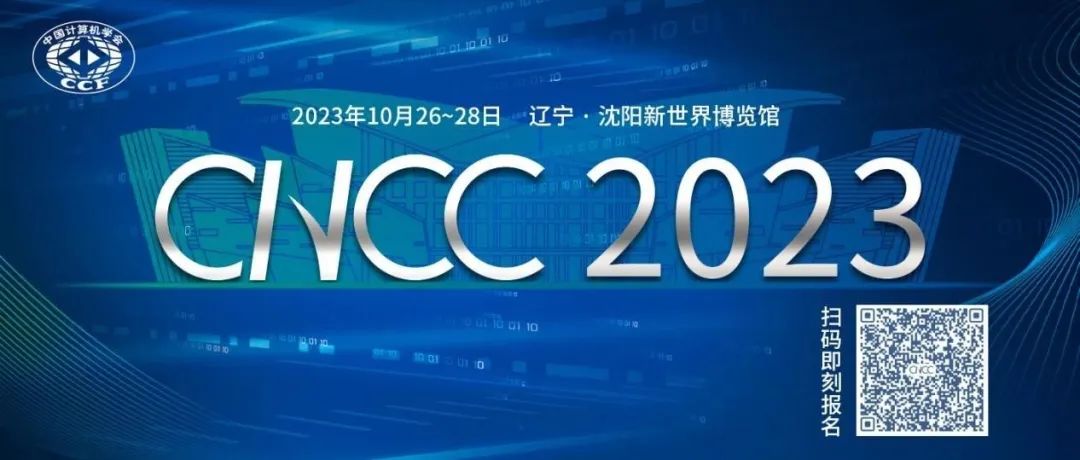
In recent years, complex embedded applications in fields such as aerospace, industrial equipment, and intelligent transportation have increasingly exhibited new development trends, including complex components, polymorphic interconnections, intelligent processing, distributed collaboration, and security and trustworthiness, posing new technical challenges to traditional embedded software and system technology frameworks.
As we know, service-oriented computing concepts and cloud computing technologies based on containers, microservices, and DevOps have inherent advantages in virtual packaging, functional decoupling, elastic organization, and efficient collaboration, providing new technical avenues for these new complex embedded applications. In particular, technical forces from academia and industry have widely devoted themselves to integrating cloud-native concepts and methods into the embedded system technology framework in recent years, achieving significant progress in areas such as embedded virtualization, microservices embedded software design, hybrid critical service scheduling, and embedded cloud-native for specific scenarios, realizing cross-empowerment of the cloud-native technology system, which is oriented towards server clusters and high-performance general-purpose computing platforms, to the architectural-fixed, application-customized, and resource-constrained embedded systems.
In light of this, the CCF Embedded Systems Committee has organized this special technical forum to focus on in-depth discussions regarding the current state of development and the challenges faced by the embedded cloud-native technology system under multi-dimensional constraints.

Forum Schedule
|
Order |
Topic |
Speaker |
Organization |
|
1 |
Virtualization Technology for Embedded Real-Time Operating Systems |
Xie Guoqi |
Hunan University |
|
2 |
Task-Driven Cloud-Edge Collaborative Computing Offloading and Service Deployment |
Yang Pengfei |
Xidian University |
|
3 |
Managing Information Synchronicity in Real-Time Systems |
Guan Nan |
City University of Hong Kong |
|
4 |
Yihui: Task-Critical Cloud-Native Technology |
Xu Guizhou |
Beijing Yihui Information Technology Co., Ltd. |
|
5 |
Discussion and Practice on Onboard Cloud-Native Solutions |
Zhou Ting |
Xian Aircraft Computing Technology Research Institute |

Forum Chair
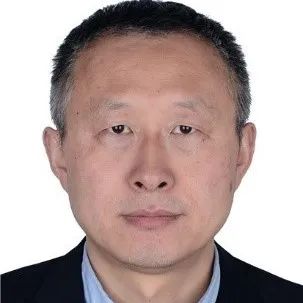
Guo Bing
Deputy Director of CCF Embedded Systems Committee
Professor/Doctoral Supervisor at Sichuan University, Vice Dean of the School of Computer (Software School)
CCF Outstanding Member. Visiting professor at Michigan State University, Tsukuba University in Japan, and Kyungwon University in South Korea. Main research areas include embedded systems, green computing, blockchain, and industrial software. He has led over 30 national key R&D plans, major national special projects, NSFC key projects, National Natural Science Foundation projects, “863” projects, and corporate horizontal projects. He has published over 60 high-quality academic papers in journals such as IEEE Transactions on Cloud Computing and Journal of Computer Science, and has organized international conferences such as GreenCom2011, EmbeddedCom2013, ESCT2013, ICESS2016, CBD2016, and FFC2016 as co-chair, receiving various awards from Sichuan Province, Hubei Province, and the National Defense Science and Technology Commission.
Co-Chair

Zhang Kailong
Secretary-General of CCF Embedded Systems Committee
Professor/Doctoral Supervisor at Northwestern Polytechnical University, Director of the Joint Laboratory of Robotics and Swarm Intelligence Systems with MINES ParisTech
CCF Outstanding Member, Postdoctoral (France), recognized as one of the Top Ten Outstanding Young People in Embedded Systems in China, and recipient of the “Kahn-Gang” award from the Sino-French Scientific and Applied Foundation. Main research areas include heterogeneous real-time computing, aerospace swarm intelligent collaborative systems, and cooperative intelligent transportation systems. He has led three National Natural Science Foundation projects and 16 other major projects. He has published over 60 academic papers in top journals and flagship conferences in the field, and has over 20 patents and copyrights. He has co-authored seven textbooks including “Embedded System Architecture, Principles, and Design” and “Plato and the Technological Idiot”.

Report and Speaker Introduction
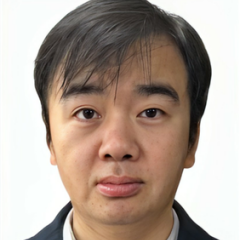
Xie Guoqi
Deputy Secretary-General of CCF Embedded Systems Committee, Academic Secretary of YOCSEF Changsha
Director of the Hunan Provincial Key Laboratory of Embedded and Network Computing, Professor/Doctoral Supervisor at Hunan University
CCF Senior Member, recipient of the National Youth Talent Plan, and Hunan Province Outstanding Youth Fund. Engaged in research and talent training in core technologies of embedded computing, he has led the development of several embedded systems and software including the on-board network comprehensive verification platform, vehicle networking 4G/5G time synchronization software, vehicle networking V2X scenario verification system, automotive software auxiliary design tools, and open-source embedded real-time virtual machine ZVM, which have been applied in industrial practice. His research results have been published in conferences and journals such as RTSS, DAC, TPDS, TCAD, TDSC, with four English review papers and two English monographs. He serves on the editorial boards of three SCI journals in the embedded field: JSA, JCSC, and MICPRO.
Virtualization Technology for Embedded Real-Time Operating Systems
As the functionalities of embedded systems become increasingly rich, embedded development presents dual demands for rich functionality and hard real-time. Hybrid kernel deployment based on operating system virtualization technology is one of the solutions to meet these dual demands. The embedded real-time virtual machine ZVM, led by the Hunan Provincial Key Laboratory of Embedded Computing, is a virtualization software designed and developed based on the real-time operating system Zephyr, capable of simultaneously launching two Guest OSs, Linux and Zephyr, on the same hardware platform for hybrid kernel deployment. Currently, this project has been open-sourced to the openEuler community. This report will introduce the key core technologies of implementing ZVM, the actual deployment effects, and subsequent functional development and ecological construction.
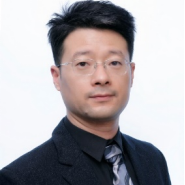
Yang Pengfei
Associate Professor/Doctoral Supervisor at Xidian University, Special Researcher at the Engineering Research Institute
CCF Senior Member, visiting scholar at the University of Leeds, board member of the Association of Returned Overseas Chinese Students, and Deputy Director of the Department of Computer Engineering. His main research areas include embedded system architecture and security, leading over ten projects including the National Natural Science Foundation, Huayan Project, military equipment projects, and key industrial projects in Shaanxi Province. He has published over 30 research papers in prestigious journals and conferences such as IoTJ, TPDS, TIM, JSA, and Esweek, and his research has received the Second Prize of the Scientific and Technological Progress Award from the China Electronics Society.
Task-Driven Cloud-Edge Collaborative Computing Offloading and Service Deployment
In cloud-edge collaborative systems, the computing and storage capabilities of edge servers are limited, and different nodes exhibit characteristics of heterogeneous systems and resource diversity. Therefore, dynamic and collaborative task management based on task attributes and the resource status of cloud-edge devices becomes critical for reducing system latency, balancing system load, improving system performance, and maximizing the computing power of cloud-edge collaborative systems. This report will elaborate on the task offloading strategies for heterogeneous scenarios, service deployment strategies, and QoS-aware offline mixed strategies in the context of diverse task access forms in cloud-edge collaborative scenarios, and will introduce the application of cloud-edge collaborative computing in engineering fields.

Guan Nan
Associate Professor/Doctoral Supervisor at City University of Hong Kong
CCF Senior Member, obtained his PhD from Uppsala University in Sweden, with research areas including real-time embedded systems, autonomous systems, cyber-physical systems, and the Internet of Things. He received the ACM SIGBED Early Career Researcher Award in 2020, the EDAA Outstanding Dissertation Award in 2014, and received several best paper awards at conferences such as RTSS, EMSOFT, and ACM e-Energy. He has served as chair of the RTAS 2022 conference and program committee chair for several other conferences, currently serving as an executive member of the IEEE Technical Committee on Real-Time Systems (TCRTS).
Managing Information Synchronicity in Real-Time Systems
In computing systems, when multiple information streams converge, information synchronicity constraints require that data from different streams can only be aggregated when they are generated close to the same time at their source. For instance, in autonomous vehicles, perception of the external environment usually relies on the fusion of measurement data obtained from multiple sensors. If the measurement data from two sensors are generated at significantly different time points, their information fusion will fail to accurately reconstruct the view of the environment. This report will present our recent work on how to formally prove the satisfaction of information synchronicity constraints and optimize system design to better meet information synchronicity and classical real-time constraints.

Xu Guizhou
Co-founder of Yihui Information, core member of the operating system kernel team
Executive member of CCF Embedded Systems Committee, Director and Vice President of R&D at Beijing Yihui Information Technology Co., Ltd., responsible for the company’s major projects in “Intelligent Robotics,” “Smart Grid,” and the “Microservice Operating System” project in the rail transit field, with 12 authorized invention patents. He is responsible for the aerospace operating system project, with over 20 satellites currently in orbit and successful launches of three types of rockets. He oversees the Yihui Information University Program, having established joint laboratories with Beihang University, Northwestern Polytechnical University, and South China University of Technology, and has co-authored the textbook “SylixOS Device Driver Development” published in 2022.
Task-Critical Cloud-Native Technology
Currently, in task-critical industrial scenarios such as automobiles, eVTOLs, and drones, the increasing scale of software leads to longer release cycles. Yihui Information researches core technologies such as real-time container technology, service-oriented software architecture, and automated container governance platforms based on real-time operating systems SylixOS and time-partitioned operating system Matrix653, launching a task-critical cloud-native technology system for the embedded field. This aims to achieve a more secure and efficient software design model, realize the decoupling of software and hardware, facilitate rapid software development and iteration, and help critical industries build an industry-leading DevSecOps technology R&D system, significantly shortening the development cycle of task-critical software, reducing software development costs, and improving software reuse rates and system fault tolerance.
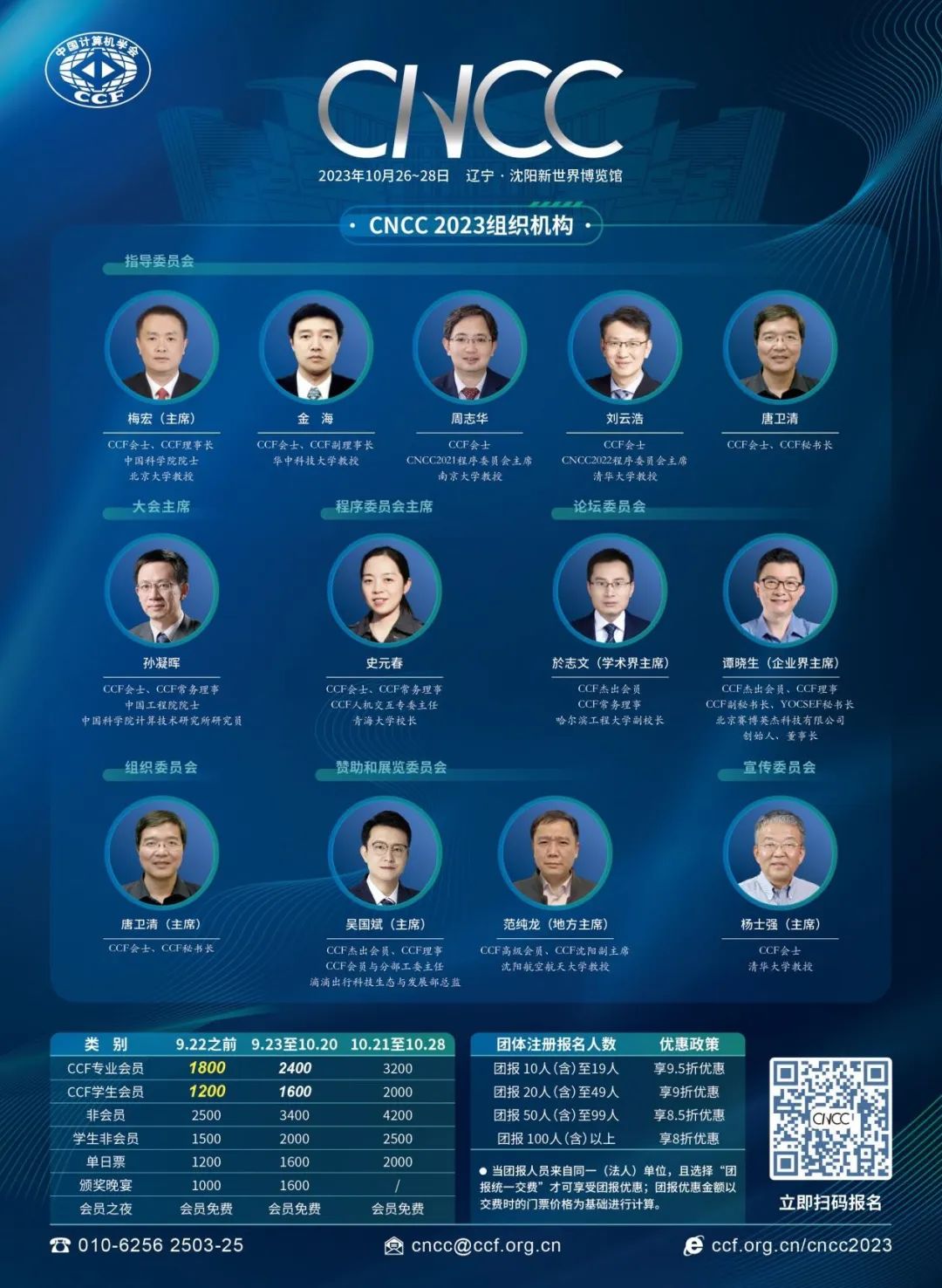
Zhou Ting
Senior Engineer at the Xi’an Institute of Aerospace Computing, Head of New Technology Direction for Embedded Operating Systems
He has long been engaged in cutting-edge exploration, breakthrough of key technologies, and transformation of embedded operating system-related technologies, having been responsible for several national key preliminary research projects, with in-depth research in multi-core deterministic processing, lightweight embedded virtual machines, embedded real-time containers, hybrid critical systems, and information security. In recent years, he has begun researching the application of cloud-native technology in onboard embedded scenarios, achieving a series of research results.
Discussion and Practice on Onboard Cloud-Native Solutions
Cloud-native has become the mainstream direction of cloud computing architecture technology development, becoming the preferred choice for building elastic and scalable application systems, and has been widely applied in both IT and industrial fields. In recent years, the aerospace field at home and abroad has begun to attempt the application verification of cloud-native technology in joint combat systems and multiple aircraft models. Based on the existing onboard embedded software stack, integrating cloud-native technology to build a cloud-native capability system suitable for onboard hybrid critical scenarios, including container runtimes, application orchestration, microservices frameworks, and DevOps toolchains, can promote the software-defined and agile capability generation of aircraft equipment and other cross-generational technological advancements.
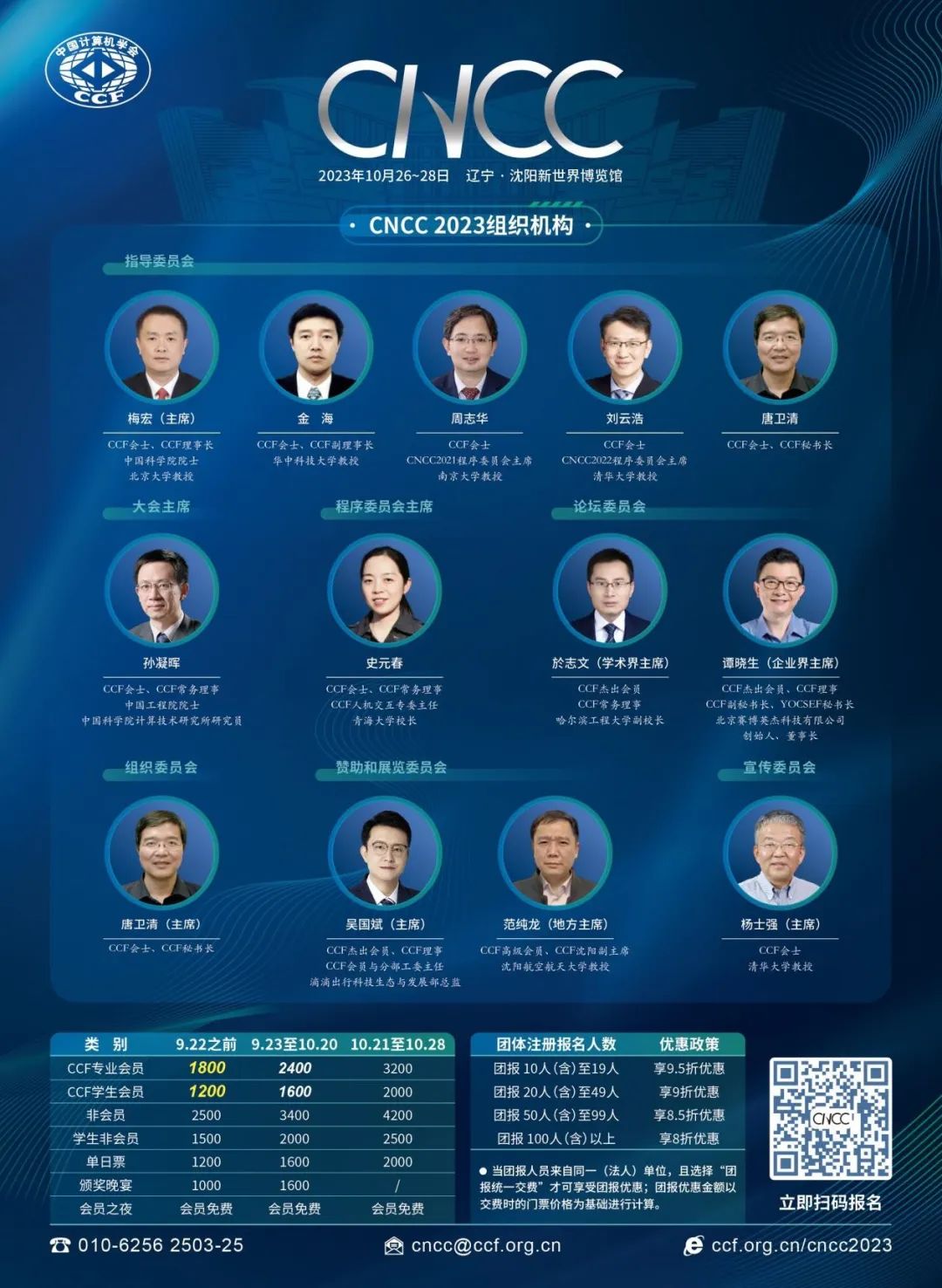
This year marks the 20th anniversary of CNCC’s establishment. Over the past twenty years, CNCC has gradually developed to cover over 120 technical forums across dozens of topics, with more than 700 domestic and international speakers actively participating and over 13,000 registrations for the annual conference in the computing field. For twenty years of continuous surpassing, as an annual conference with numerous participants, large scale, and high level in the domestic computing field, CCF will carefully plan to bring participants a cutting-edge collision and a forward-looking technological feast, allowing every attendee to enhance their professional value and gain momentum for advancement on this large-scale professional platform of CNCC! We look forward to your participation, take action now, and welcome to register for the conference!